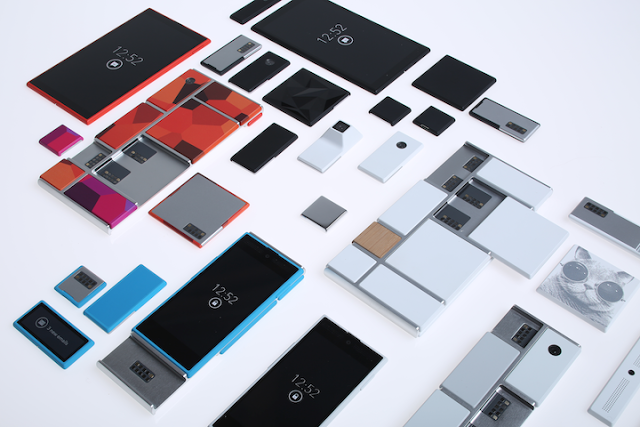
With smartphones selling in upwards of $600, smartphone companies are looking to make things more interesting. Samsung has opted to add new features to their phones. For example, the Galaxy S5 will have “ultra power saving” mode, where the phone will last another 24 hours on 10% battery. Mozilla and Google, however, are taking a different approach. First up is Google’s Project Ara. For less than $50 for the bare basics, Google is looking to make a modular smartphone, where users can swap out hardware and not be stuck with what the manufacturer decides. On the other hand there is Mozilla, who is taking the approach of cheap and disposable phones. They hope to flood the market with less than $25 phones running Firefox OS, a free software alternative to Android. They have teamed up with many companies to make cheaper phones. Both movements are hoping to make phones more consumer-friendly and, simultaneously, more available to those who cannot afford them.
Project Ara has its roots in September of last year, when Phonebloks, a project looking to create modular phones, began to get news coverage. The goal was to cut electronic waste by letting users upgrade the parts in their phone, rather than throwing the phone away and buying a new one. However, as described by Antony Leather from Forbes, there are a number of technical problems, such as making sure the phone does not become too bulky. In addition, for a phone made of separate parts, manufacturers need to provide a variety of quality parts the user can buy. Then Motorola stepped in. Motorola started working with the creator of Phonebloks to try to make it a reality. Soon after Motorola made a multi-year deal with 3D systems to assemble and manufacture the new modular phone project.
Project Ara is the result of Phonebloks. Even though Google is selling Motorola to Lenovo, they plan on keeping the Advanced Technologies team, which is working on the modular smartphone project. Just this week, Google launched the official website for Project Ara. The site announces a developers conference Google is hosting to work on the project. The conference will be part-online, part-in-person, and the hope is that developers from around the world will come and give their opinion on modular phones and what should go into the design. Paul Eremenko, who is leading Project Ara, said to Time, “The question was basically, could we do for hardware what Android and other platforms have done for software? Which means lower the barrier to entry to such a degree that you could have tens of thousands or hundreds of thousands of developers as opposed to just five or six big [manufacturers] that could take part in the hardware space.”
Mozilla is taking a more conventional approach. They do not want to fundamentally rethink smartphones, but they do want to make them cheaper. Recently Mozilla has been working on Firefox OS. Centered around the web, this mobile operating system, which, unlike Android and iOS, is completely free and open source, is supposed to make phones more user-friendly. At the Mobile World Congress this week, Mozilla announced that they are committed to providing open platforms for users. They hope to offer a large number of extremely cheap smartphones for users, without cutting out any of the major features one looks for in a good phone. As of now, Alcatel OneTouch, LG, and ZTE are all building phones with Firefox OS installed. The phones currently do not match the specs of Android phones or the iPhone, but they are rapidly catching up. A representative from chip-maker Spreadtrum Communications said they want to “expand the global accessibility of open Web smartphones to first-time and entry-level smartphone buyers.” In other words, emerging smartphone markets will be the first to see these cheap phones, but it will not be long before they make their way to the United States as well.
The goal is to find a phone that will cause more people to buy phones. Because, of course, in the end phone companies need to make money. Both Mozilla and Google want to make phones much cheaper, while also making them more open and “hackable” for users. And you do not have to be a geek to like a modular or hackable phone. Even for everyday users, being able to upgrade your phone without spending a large amount of money will lower the bar for people looking to buy smartphones. Of course, Project Ara is still in its infancy, and it will be a while before cheap Firefox phones make their way to the United States, but it is at the very least a glimpse into the future of the smartphone market and what we may be seeing in the next few years.

Be First to Comment